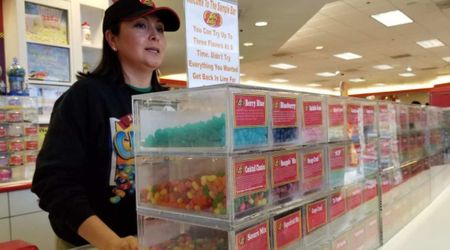New Survey Shows That Younger People are More Vulnerable to Online Scams; Here's Why

Generational gap in fraud perception

It has been previously thought that older generations are more vulnerable to scams in the digital age due to their limited awareness about technology and the internet. But a recent survey by Bank of America’s Better Money Habits has revealed a concerning trend among younger generations regarding their perception of financial fraud. The survey, which looked at responses from 1,000 people, found that only 15% of Gen Z and 20% of millennials expressed concern about falling victim to stolen money or assets through deceptive tactics. In contrast to this, approximately 27% of baby boomers feel at risk of fraud.
Head of client protection for consumer and small businesses at Bank of America, pointed out that younger generations are still grappling with financial literacy and the understanding of fraud risks. The lack of concern is partly due to their reliance on online banking apps, which they believe offer real-time protection against fraud. But in reality, this perceived safety might be misleading, providing a false sense of security.
Even though these younger adults have smaller account balances compared to the older generation, the impact of financial fraud can significantly dent their stability. Younger people generally have less robust credit and limited budget flexibility, which makes the consequences of fraud even more severe for them.

An alarming trend highlighted by the Federal Trade Commission (FTC) report is the increase in scams on social media platforms. These scams have led to consumers losing about $2.7 billion, and here too, younger adults have been more susceptible. In the first half of 2023, 38% of fraud losses for individuals aged 20 to 29 occurred via social media, and this figure went up to 47% for those aged 18 and 19.
Recovery from a scam can also vary with some issues, like unauthorized credit card charges, getting resolved quickly due to robust fraud protections, and others leaving long-lasting effects. For instance, the theft of a Social Security number can lead to identity theft, resulting in fraudulent tax returns and unauthorized loans or credit card openings.
To combat these risks, the establishment of a basic financial fraud check routine has been recommended. This involves regularly scrutinizing bills and credit card statements for unrecognized charges, no matter how small. Being vigilant and skeptical, especially when signing up for new services that require financial information, is crucial. Young people paying more attention to the fine print and the implications of data theft, is essential for protecting oneself against potential fraud.
The findings from Bank of America’s Better Money Habits survey and subsequent advice from financial experts underline the need for increased awareness and vigilance among younger generations when it comes to financial fraud. Gen Zs and Millennials need to be informed that even though digital tools offer convenience and a sense of security, they are not foolproof. As tactics used for fraudulent schemes are constantly evolving, particularly on social media platforms, understanding the risks they pose and taking proactive measures against them has become more critical than ever.























